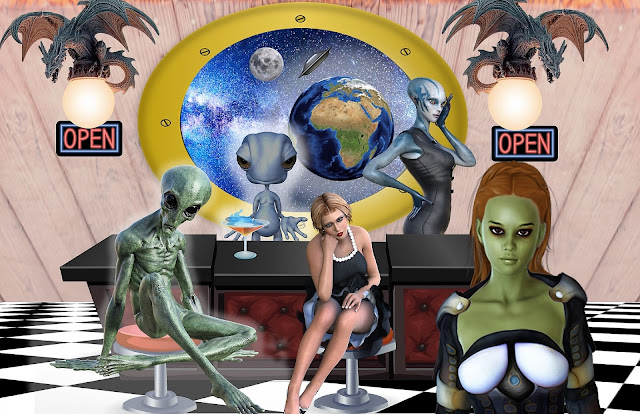The thing that I don’t understand about some science fiction
writers is how they can straight out deny the genre as prophecy. The
late Ursula Le Guin (may she rest in peace) did this and Corey
Doctorow does do it, among others. It’s nearly obvious that
yesterday’s science fiction has become today’s science fact. Even
so, authors such as the above like to explain away this fact with
their rationalisation. But does prophecy have to be unexplainable or
supernatural (at least directly)? No, it doesn’t. It doesn’t even
have to predict the future correctly if at all. And so, like science
fiction, prophecy doesn’t always get its visions of future society
right.
The
science fiction writers who like to deny the genre being prophecy
often use the rationale that sci
fi is a
criticism of today’s
issues re-imagined
as futuristic ones.
While this isn’t
completely wrong, Ursula Le Guin thought of the genre in this
way and Corey Doctorow does similar. Using Isaac Asimov as an example,
Doctorow says in an interview ar CBC.ca that he doesn’t believe
Asimov was predicting the future but
was instead “reflecting”
his concerns about the present. He also says in this same interview that authors like Orwell, Huxley
and Shelley were not making predictions but were “giving warning.”
But isn’t that a major
characteristic of
prophecy right there? Often
prophets warn about negatively
impacting future events
or consequences of a society’s actions.
Prophecy doesn’t
have to be a precise prediction of events and a lot of times it
isn’t. It anticipates what the future may be but not
necessarily predict what it will be. Even experts in the Catholic Church will tell you that prophecy does not necessarily predict
anything. Prophecy can imagine the future but won’t necessarily predict it
even though what has been imagined may turn into reality to some
extent. So, prophecy is a lot like science fiction--it speculates on
the future, a future that it only sometimes gets right.
Many science fiction
writers say that genre as prophecy is a false notion. That’s only
partly true. There are also sci fi authors who are at least open to
the possibility of the genre as prophecy. Jeff VanderMeer, author of
the Nebula Award-winning Annihilation,
is one. In an article in The New York Review of Books, he says
of surreal speculative fiction writer David R. Bunch’s stories, “In
the years since his most prolific period, the nightmarish dystopia he
imagined has begun to look increasingly prescient, even prophetic.” (By the way, as VanderMeer also says, Bunch’s work had been out of
print for several years. But a new edition of his collection of
works, Moderan, is now out. In fact, the article referenced
above is from the book’s introduction that VanderMeer wrote. This
is one I’ll have to get my hands on since I like dark and surreal
spec fiction!)
Science fiction
author Namwali Serpell straight out says that “the genre has
predicted satellite communication, army tanks, tablets, submarines,
psychotropic pills, bionic limbs, CCTV, electric cars and video
calling.” In fact, she nearly declares herself a prophet: “I write science
fiction set in the near future, so I’m constantly testing my own
powers of prophecy.” She may only mean this metaphorically, but it
indicates that she believes the genre itself has been prophetic.
Science fiction is
not an accurate prediction of the future and not even prophecy has
been that. Prophecy does not guarantee a society’s fate and science
fiction guarantees it much less. Prophecy in its less mystical
definition is an anticipation of what could happen and whether it
happens or not is up to us as a society. As science fiction has
influenced us in how we handle the course of society, prophecy has
done the same. So, the prophetic fulfillment often depends on the
people influenced by the prophecy and their reaction to it. Such
foresight of coming events is more speculation than prediction. If
those events come to be, then they were predicted correctly. If they
don’t come to be, it’s because we as a people made them not to.
I’ll agree with
Doctorow and Le Guin on one thing when it comes to the debate over
whether sci fi is prophecy: most science fiction writers don’t sit
down at their desks and attempt to predict the future. I don’t. Yet
the stories themselves can be inevitably prophetic. If the events in
the stories turn into reality then they do; if they don’t, they
don’t. What’s important is that those stories make us think about
how we as a society can improve the world while, at the same time,
entertain us.
Do you think science
fiction can be prophetic? Feel free to drop your answers in the box
below.
Until next time . .
.
 |
| Credit: Pixabay.com |
Comments
Post a Comment